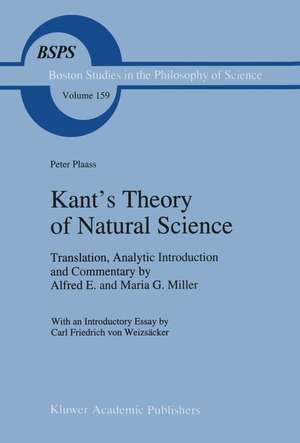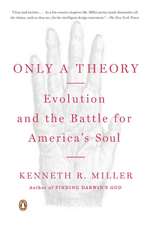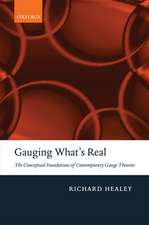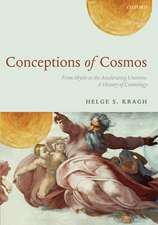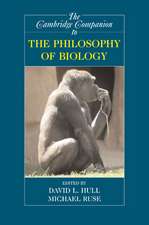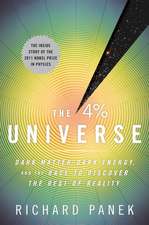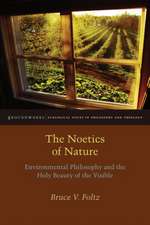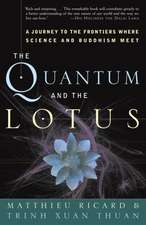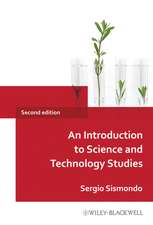Kant’s Theory of Natural Science: Boston Studies in the Philosophy and History of Science, cartea 159
Autor Peter Plaass Traducere de A. E. Milleren Limba Engleză Paperback – 14 oct 2012
| Toate formatele și edițiile | Preț | Express |
|---|---|---|
| Paperback (1) | 790.00 lei 38-44 zile | |
| SPRINGER NETHERLANDS – 14 oct 2012 | 790.00 lei 38-44 zile | |
| Hardback (1) | 953.82 lei 6-8 săpt. | |
| SPRINGER NETHERLANDS – 31 mar 1994 | 953.82 lei 6-8 săpt. |
Din seria Boston Studies in the Philosophy and History of Science
- 18%
 Preț: 944.19 lei
Preț: 944.19 lei - 15%
 Preț: 646.75 lei
Preț: 646.75 lei - 15%
 Preț: 646.75 lei
Preț: 646.75 lei - 15%
 Preț: 699.28 lei
Preț: 699.28 lei - 18%
 Preț: 736.50 lei
Preț: 736.50 lei - 18%
 Preț: 706.87 lei
Preț: 706.87 lei - 15%
 Preț: 643.16 lei
Preț: 643.16 lei - 15%
 Preț: 650.69 lei
Preț: 650.69 lei - 15%
 Preț: 634.18 lei
Preț: 634.18 lei - 15%
 Preț: 642.68 lei
Preț: 642.68 lei -
 Preț: 391.40 lei
Preț: 391.40 lei -
 Preț: 383.33 lei
Preț: 383.33 lei - 18%
 Preț: 944.19 lei
Preț: 944.19 lei - 18%
 Preț: 955.56 lei
Preț: 955.56 lei - 15%
 Preț: 643.65 lei
Preț: 643.65 lei -
 Preț: 392.75 lei
Preț: 392.75 lei - 18%
 Preț: 1229.10 lei
Preț: 1229.10 lei - 18%
 Preț: 1238.23 lei
Preț: 1238.23 lei - 18%
 Preț: 951.29 lei
Preț: 951.29 lei - 18%
 Preț: 1223.25 lei
Preț: 1223.25 lei - 18%
 Preț: 1225.79 lei
Preț: 1225.79 lei - 18%
 Preț: 1226.42 lei
Preț: 1226.42 lei - 18%
 Preț: 1236.82 lei
Preț: 1236.82 lei - 15%
 Preț: 644.49 lei
Preț: 644.49 lei - 18%
 Preț: 1231.78 lei
Preț: 1231.78 lei - 15%
 Preț: 644.30 lei
Preț: 644.30 lei - 18%
 Preț: 957.62 lei
Preț: 957.62 lei - 18%
 Preț: 1222.49 lei
Preț: 1222.49 lei - 18%
 Preț: 947.50 lei
Preț: 947.50 lei - 18%
 Preț: 1833.95 lei
Preț: 1833.95 lei - 18%
 Preț: 1227.99 lei
Preț: 1227.99 lei - 18%
 Preț: 947.35 lei
Preț: 947.35 lei
Preț: 790.00 lei
Preț vechi: 1039.48 lei
-24% Nou
Puncte Express: 1185
Preț estimativ în valută:
151.17€ • 158.56$ • 125.84£
151.17€ • 158.56$ • 125.84£
Carte tipărită la comandă
Livrare economică 28 martie-03 aprilie
Preluare comenzi: 021 569.72.76
Specificații
ISBN-13: 9789401044929
ISBN-10: 9401044929
Pagini: 388
Ilustrații: XVI, 367 p.
Dimensiuni: 152 x 223 x 20 mm
Ediția:Softcover reprint of the original 1st ed. 1994
Editura: SPRINGER NETHERLANDS
Colecția Springer
Seria Boston Studies in the Philosophy and History of Science
Locul publicării:Dordrecht, Netherlands
ISBN-10: 9401044929
Pagini: 388
Ilustrații: XVI, 367 p.
Dimensiuni: 152 x 223 x 20 mm
Ediția:Softcover reprint of the original 1st ed. 1994
Editura: SPRINGER NETHERLANDS
Colecția Springer
Seria Boston Studies in the Philosophy and History of Science
Locul publicării:Dordrecht, Netherlands
Public țintă
ResearchCuprins
Translators’ Introduction and Commentary.- Table of Contents to Introduction and Commentary.- Kant’s Theory Of Natural Science According To P. Plaass: An Introductory Analytic Essay by C. F. von Weizsäcker (1965).- Kant’s Theory of Natural Science — Peter Plaass.- Preface — C. F. von Weizsäcker.- Foreword — P. Plaass.- 0. Introduction.- 1. The Object of Natural Science: Nature.- 2. Doctrine and Science Proper.- 3. The Pure Part of Natural Science.- 4. The Empirical Concept of Matter.- 5. Pure Natural Science as Pure Doctrine of Motion.- 6. The Function of the Pure Part.- Selected Bibliography Since Plaass.
Recenzii
` I have read the text and want to congratulate (the translators). The translation of Plaass' book is not only accurate but charming in style. It could not have been better.
(The) introductory commentary is an excellent exposition of the whole issue of Kant's transition from the Critique to the Metaphysical Foundations . The problem as such needed critical consideration, and (this has been) done in an expert way. ' W.H. Werkmeister
` Published a year before the revised edition of the Critique of Pure Reason, Kant's Metaphysical Foundations of Natural Science constitutes the first instalment of his physics and a central part of the system of transcendental philosophy ensuing, as promised, from the Critique. Yet far too little attention has been paid by Kant scholars, especially on this side of the Atlantic, to this crucial work. In their study, Kant's Theory of Natural Science, Drs. Alfred and Maria Miller take a major step towards remedying this unfortunate neglect. The Millers have performed an important service by translating Peter Plaass's thoughtful investigation of the Preface to Kant's work. They have, however, in their own right also made a highly significant contribution to the understanding of Kant's physics in this pivotal work by ingeniously reconstructing its arguments and methods as a whole. '
Daniel O. Dahlstrom, Professor of Philosophy, The Catholic University of America
(The) introductory commentary is an excellent exposition of the whole issue of Kant's transition from the Critique to the Metaphysical Foundations . The problem as such needed critical consideration, and (this has been) done in an expert way. ' W.H. Werkmeister
` Published a year before the revised edition of the Critique of Pure Reason, Kant's Metaphysical Foundations of Natural Science constitutes the first instalment of his physics and a central part of the system of transcendental philosophy ensuing, as promised, from the Critique. Yet far too little attention has been paid by Kant scholars, especially on this side of the Atlantic, to this crucial work. In their study, Kant's Theory of Natural Science, Drs. Alfred and Maria Miller take a major step towards remedying this unfortunate neglect. The Millers have performed an important service by translating Peter Plaass's thoughtful investigation of the Preface to Kant's work. They have, however, in their own right also made a highly significant contribution to the understanding of Kant's physics in this pivotal work by ingeniously reconstructing its arguments and methods as a whole. '
Daniel O. Dahlstrom, Professor of Philosophy, The Catholic University of America
